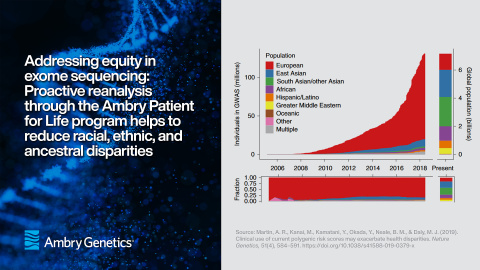- By Carrie Horton, MS, CGC
- Posted February 23, 2024
Variant Interpretation in Real Time: Sometimes it Takes a Village
Every individual's genetic makeup is unique, containing the blueprint for their health, including susceptibility to diseases and potential response to treatments. But understanding your genes is like deciphering a complex code. DNA varies slightly from person to person, and interpreting the medical significance of those differences, or variants,…
- By Meagan Farmer
- Posted February 21, 2024
A GC’s Perspective on Lab Expertise: Getting Answers After Years of Uncertainty
Kaitlin Stokes is a genetic counselor at Houston Methodist West in Houston, TX. She sees patients with personal or family histories of cancer that may be due to an underlying hereditary cause. We recently connected with Kaitlin about her role, and she shared, “I love what I do because I feel like I’m helping people. I’m giving them control…
- By Lisa Kindel
- Posted February 12, 2024
Meet Raymonde Saintil: Ambry Clinical Lab Manager
Sunday, February 11, is International Day of Girls and Women in Science and Ambry Genetics celebrates that daily. Named one of the “Best Places for Women to Work” in 2020, the women of Ambry Genetics exemplify the importance of their contribution in every role. One Ambry employee, Raymonde Saintil, embodies the spirit of this day with passion…
- By Liese Vito, MD
- Posted February 7, 2024
CARE Patient Examples at Lake Health
Many patients are anxious about their family history—more than providers realize. In some cases, they may feel like a ticking time bomb with no options. In Part One of this blog series, I talked about The Ambry CARE ProgramTM and how Lake Health has been able to use it to identify more high-risk patients, increase family history and cancer risk…
- By Meghan Towne, MS, CGC, LCGC
- Posted January 30, 2024
Ambry Collaborations with GeneMatcher Help Further Disease Gene Discovery and Improve Diagnostic Rates
The Problem of Unsolved Cases While our knowledge of human genetics has grown significantly, many gaps remain in our understanding of genes and their contribution to human disease.1-3 We have a lot to learn: • Only about 16% of all the genes in the human body have an established disease association. • The genetic cause is known for…
- By Liese Vito, MD
- Posted January 24, 2024
Hereditary Cancer Testing with CARE
According to studies, 93% of high-risk women who qualify for breast MRI have not had one.1 97% of women at risk for hereditary breast/ovarian cancer have not had genetic testing.2 These healthcare gaps mean high-risk patients are being missed when it comes to proactive and preventative care. As a practicing OB-GYN for twenty years, I have seen…
- By Jessica Scott, MGC, CGC
- Posted January 17, 2024
The Patient Impact of Lab Expertise and Collaboration
“My advice for clinicians and healthcare providers who are ordering genetic testing is [that they] should feel that they are partners with the lab,” explains Chana Ratner, Genetic Counselor at Hackensack University Medical Center. We were grateful for the opportunity to connect with Chana and to discuss her experience as a clinical genetic…
- By Marcy Richardson, PhD
- Posted December 19, 2023
The Path to Clinical Relevance: What a Study on RAD51C Reveals about Resolving VUS
Everyone has genetic variation….and lots of it. It’s part of what makes us each unique. Genetic variation is defined by differences in our own genome and a reference genome. (The fact that there is only one reference genome selected to compare to all of our collective, rich, human diversity is a topic for another post.) Another source of genetic…
- By Meagan Farmer
- Posted December 8, 2023
A Genetic Counselor’s Experience with Proactive Reanalysis through Patient for Life: An Interview with Kelly Minks, MS, CGC
At the National Society for Genetic Counselors Annual Conference, I had the chance to sit down with Kelly Minks, MS, CGC. Ms. Minks is a genetic counselor in the Department of Neurology at the University of Rochester Medical Center, with a clinical practice focused on pediatric neurology. She routinely orders exome testing for children with developmental…
- By Andrew Giles, MS, CGC
- Posted December 5, 2023
Addressing equity in exome sequencing: Proactive reanalysis through the Ambry Patient for Life program helps to reduce racial, ethnic, and ancestral disparities
We know there are healthcare disparities among racial and ethnic groups; these disparities also impact genetic testing. Research and clinical studies have lacked diverse representation and have been predominantly composed of people with European ancestry. As rates of testing have rapidly increased, this gap has only widened. This means much of…









